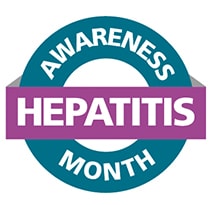 Planning on digging into your favorite dark-chocolate stash, or biting the ears off of a dark-chocolate bunny this weekend? Dark chocolate is popping up everywhere. Even some old favorites have a new, dark chocolate wrapper, replacing the now-passé milk chocolate. Recently, studies have extolled the benefits of dark chocolate, and how it potentially prevents heart disease, reduces the risk of brain damage after a stroke, lowers the risk of heart failure, lowers blood pressure, reduces heart disease, has anti-cancer benefits, slows dementia, raises libido, and last but not least, is mood enhancing. What about those suffering hepatitis B associated liver disease?
Planning on digging into your favorite dark-chocolate stash, or biting the ears off of a dark-chocolate bunny this weekend? Dark chocolate is popping up everywhere. Even some old favorites have a new, dark chocolate wrapper, replacing the now-passé milk chocolate. Recently, studies have extolled the benefits of dark chocolate, and how it potentially prevents heart disease, reduces the risk of brain damage after a stroke, lowers the risk of heart failure, lowers blood pressure, reduces heart disease, has anti-cancer benefits, slows dementia, raises libido, and last but not least, is mood enhancing. What about those suffering hepatitis B associated liver disease?
Last year there was a study out of Spain that investigated the benefits of dark chocolate to patients with liver disease – specifically patients with cirrhosis. Cirrhosis causes portal pressure to rise, potentially resulting in damage to blood vessels in the liver. Eating causes an additional rise in pressure, which becomes more dangerous as liver disease progresses. Half of the study participants were given white chocolate, and the other dark chocolate. The dark chocolate group saw a larger decrease in the blood pressure of the liver, and increased blood flow. Keep in mind that this was a small study with only 21 participants.
The good news is that dark chocolate, specifically the cocoa component, is rich in antioxidants called flavonoids, and other beneficial components such as phenylethylamine, theobromine, anandamide, magnesium, copper, and vitamins E and B. That’s certainly a mouth-full, but it is these key components that provide all the benefits of chocolate.
Here’s the bad news. Many of us enjoy milk chocolate, or even the dreaded white chocolate, which has little or no benefit due to the processing of the cocoa, and the resulting loss of flavonoids. In fact, the lighter the chocolate, the fewer the benefits. In a perfect world we would be eating unsweetened, cocoa powder right out of the tin, or a chocolate bar with upwards of 85% cocoa. That can be a pretty biting chocolate. The chocolate many of us enjoy has a larger quantity of white sugar , which is not beneficial to the liver, or any other organ, nor is the additional butterfat, which is added to lighter chocolate. However, if you can adjust your tastes a little and learn to adapt to less sugar and butterfat, dark chocolate is great addition to your diet.
Aren’t most of us looking for an excuse to add chocolate to our diets? Ultimately, all things in moderation is the key. A small amount (roughly 6.7 grams) of dark chocolate added to your daily diet is certainly not going to hurt you, and may in fact reduce abdominal pressure and portal pressure in the liver. Perhaps the greatest redeeming quality of chocolate is it’s mood enhancing qualities. If it feels good, and eaten in moderation, then why not reap the benefits of dark chocolate and enjoy your improved mood.





